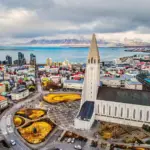But can seniors travel alone? The answer is yes, seniors can travel alone! In fact, more and more seniors are opting for this experience, enjoying the freedom and autonomy it provides. It's an opportunity to discover new places, cultures, and people, expanding horizons and creating unforgettable memories.
But it is important that the elderly person is prepared and takes some precautions before embarking on their journey. solo adventure. First, it's essential to have a medical check-up to ensure your health is adequate for travel. It's recommended to bring a copy of your medical history, a list of medications you're taking, and emergency contact information.

Additionally, it's important to research and plan ahead. Learn about your destination, check the necessary documents (such as passport and visa, if applicable), and familiarize yourself with local regulations and culture. Research available accommodations, transportation, and tourist activities. Use geolocation apps and research local public or private transportation options.
Another important aspect is safety during the trip. Be mindful of your belongings and avoid displaying valuables in public places. Keep copies of important documents, such as passports and credit cards, separate from the originals. Be aware of the destination's weather conditions and dress appropriately. Learn about local health services and consider travel insurance.
It is worth noting that age should not be an obstacle to carrying out a solo travelMany destinations around the world are adapting to welcome and meet the needs of seniors. There are accessible hotels, adapted transportation, and tourist activities geared towards older adults. Therefore, it's possible to find options that offer comfort and safety during your trip.
Traveling alone in old age can be an experience enriching and transformative. It's an opportunity to reconnect with yourself, discover new skills, make new friends, and create precious memories. With proper planning, health, and safety precautions, seniors can fully enjoy their travels, exploring the world with independence and confidence.
Benefits of Traveling in Old Age
Traveling in old age offers a range of benefits for physical and mental health. Besides providing moments of leisure and relaxation, travel stimulates the brain, promotes social interaction, and helps keep the mind active. Furthermore, experiencing new places and cultures can broaden horizons and bring a sense of personal fulfillment.
One of the main advantages of traveling in old age is its positive impact on physical health. During trips, seniors are encouraged to walk and explore different environments, which contributes to improved physical fitness, muscle strengthening, and increased cardiorespiratory endurance. Furthermore, adequate sun exposure can help with the production of vitamin D, essential for calcium absorption and bone health.
Beyond the physical benefits, traveling also offers mental health benefits. During travel, seniors are exposed to new experiences, challenges, and cognitive stimulation. This helps keep the brain active and healthy, preventing cognitive decline and reducing the risk of diseases like dementia and Alzheimer's. Learning about new cultures, languages, and history also boosts memory and reasoning skills.
Furthermore, traveling in old age provides moments of leisure and relaxation, which contributes to emotional well-being and stress reduction. By stepping away from routine and everyday worries, seniors have the opportunity to enjoy moments of relaxation, take in stunning scenery, and participate in pleasurable activities. This helps improve mood, boost self-esteem, and promote emotional balance.
Another important benefit of traveling in old age is the opportunity to foster social contact. During travel, seniors have the opportunity to interact with people from different cultures and backgrounds, which can lead to new friendships and meaningful connections. These social interactions are crucial for emotional well-being and can contribute to a greater sense of belonging and happiness.
Planning the Trip
Before embarking on a trip, it's important to plan appropriately. This includes choosing your destination carefully, considering factors such as accessibility, available infrastructure, and safety. It's also crucial to check whether any specific travel authorization or documentation is required, such as a visa or mandatory vaccinations.
The first step in planning a trip is choosing a destination. For seniors who wish to travel alone, it's important to consider the location's accessibility. Check if the destination has facilities suitable for people with reduced mobility, such as wide, unobstructed sidewalks, access ramps, and elevators in public buildings. Also, research available infrastructure, such as hospitals, pharmacies, and accessible public transportation.
Another important aspect is the safety of the destination. Research the crime rate in the area and ensure it's safe for travelers. Also, learn about precautions to take, such as avoiding dangerous areas at night and protecting your personal belongings.

Additionally, it's crucial to check the legal requirements for your trip. Depending on your destination, you may need to obtain a visa or take vaccines mandatory. Check in advance which These are the required documents, and arrange them well in advance of your trip. It's important to remember that requirements may vary by destination country and may also be different for senior travelers.
To ensure a smooth journey, it's recommended to have a medical check-up before traveling. Consult your doctor to ensure you're fit to travel and to see if there are any specific recommendations for your chosen destination. Also, be sure to bring all necessary medications and a copy of your prescriptions with you.
Safety Tips
For a safe and stress-free trip, it's essential to take certain safety measures. It's important to remain aware of your surroundings, especially in unfamiliar places. Furthermore, it's recommended to avoid carrying large amounts of cash or valuables and keep personal documents in a safe place. Another important tip is to learn about the destination's healthcare system and purchase travel insurance that offers adequate coverage.
Stay aware of your surroundings
To the traveling alone, it's crucial to always be aware of your surroundings. Be alert for suspicious behavior and avoid dangerous areas, especially at night. Research local safety information before traveling and be aware of areas to avoid. Be vigilant and trust your instincts to stay safe.
Avoid carrying large amounts of cash or valuables.
Carrying large amounts of cash or valuables can attract unwanted attention. It's recommended to only carry the cash needed for immediate expenses and use electronic payment methods whenever possible. Additionally, avoid displaying valuables, such as jewelry or expensive electronics, in public places. Keep them in a secure location, such as a hotel safe.
Keep your personal documents in a safe place
Personal documents, such as passports and ID cards, are extremely important when traveling. Always keep them in a safe place, such as a document holder or hotel safe. Make copies of your documents and keep one separate from the original. This way, if they are lost or stolen, you'll have a copy to easily replace them.
Find out about the destination's healthcare system and purchase travel insurance.
Before traveling, it's important to learn about the destination's healthcare system. Check if any prior vaccinations are required and if there are any endemic diseases in the area. Additionally, purchase travel insurance that provides adequate coverage for medical and hospital expenses, as well as repatriation in case of emergencies. This way, you'll be prepared to deal with any unforeseen circumstances during your trip.
Transport
When choosing a means of transportation, it's important to consider the needs and limitations of the elderly individual. When traveling by plane, for example, it's possible to request special assistance, such as a wheelchair or assistance boarding and disembarking. When traveling by bus, it's important to ensure the vehicle is accessible and comfortable. Furthermore, it's crucial to plan your travel arrangements during the trip, choosing locations that are easily accessible and offer adequate infrastructure.
When it comes to air travel, many airlines offer special services and amenities for senior passengers. When booking, it's a good idea to inform the airline of any specific needs, such as mobility assistance, seats near restrooms, or special meals. Some airlines also provide wheelchairs for use at the airport and offer assistance during boarding and disembarking. These measures aim to ensure the comfort and safety of seniors throughout their flight.
When traveling by bus, it's important to check whether the vehicle is accessible, such as wheelchair lifts and reserved seats for seniors. Additionally, it's recommended to choose bus companies that offer comfortable vehicles with spacious seats and leg rests. This way, seniors can enjoy more comfortable and safe transportation during their bus trip.
It's also crucial to plan your travels, choosing locations that are easily accessible and offer appropriate infrastructure for seniors. Choosing destinations with accessible sidewalks, efficient public transportation, and adapted establishments can make all the difference in your experience. travel for an elderly person traveling alone.

Hosting
When choosing accommodations, it's important to consider factors such as accessibility, safety, and comfort. It's also crucial to check whether the establishment has rooms adapted for guests with reduced mobility and offers support services such as internal transportation and medical assistance. It's also a good idea to read reviews from other guests to assess the quality of the service offered.
Accessibility: To the traveling alone, especially for seniors, finding accessible accommodations is essential. Make sure the property has facilities adapted for people with reduced mobility, such as ramps, elevators, and rooms with adequate bathrooms. These features make it easier to get around and provide greater comfort during your stay.
Security: Security is a crucial aspect when choosing a hosting for traveling alone. Check if the property has security measures, such as surveillance cameras, a 24-hour concierge, and restricted guest access. Also, research the property's reputation regarding safety in the neighborhood or region where it is located.
Comfort: Comfort is another important factor to consider when choosing accommodations. Make sure the rooms offer adequate amenities, such as comfortable beds, air conditioning, television, Wi-Fi, and well-equipped bathrooms. A welcoming and comfortable environment contributes to a pleasant and relaxing stay.
Reviews from other guests: Before booking, it's a good idea to read other guests' reviews of the property. These reviews can provide valuable information about the quality of service, cleanliness, location, and other important aspects. Look for recent, reliable reviews from previous guests.
In short, when choosing hosting for traveling alone, it's essential to consider accessibility, safety, comfort, and guest reviews. These aspects ensure a peaceful and pleasant stay, providing the necessary freedom. explore new destinations with confidence and independence.
Hosting
When choosing accommodations, it's important to consider factors such as accessibility, safety, and comfort. It's also crucial to check whether the establishment has rooms adapted for guests with reduced mobility and offers support services such as internal transportation and medical assistance. It's also a good idea to read reviews from other guests to assess the quality of the service offered.
Activities and Leisure
During the trip, it is important to plan activities and leisure time that suit the elderly person's pace and preferences. Cultural tours, contact with nature, visits to museums and exhibitions, and moments of rest are some options that can make the trip even more enriching. It's essential to respect the elderly's limits and provide moments of relaxation and fun.
For seniors who enjoy culture, visiting museums and exhibitions is a great option. Many of these venues offer discounts or free admission for seniors. Additionally, guided tours specifically geared toward seniors can be found, providing a more enriching and accessible experience.
For those who enjoy being in touch with nature, parks and gardens are excellent options. Walking outdoors, observing the local fauna and flora, and enjoying moments of tranquility surrounded by nature are activities that can bring well-being and relaxation. Some destinations even offer adapted trails and facilities that facilitate access for people with reduced mobility.
Additionally, it is important to set aside time for rest and relaxation during your trip. Find a quiet spot to read a book, take a boat ride, or simply enjoy an afternoon at a cafe are activities that can provide moments of peace and contemplation.

It's essential to remember that each person is unique and has their own preferences and limitations. Therefore, it's important to adapt activities and leisure time to the elderly person's needs. Consult a doctor before traveling It is an important measure to ensure that the elderly person is able to carry out the planned activities.
In short, when planning a travel for an elderly person traveling alone, it's essential to consider activities and leisure time that align with their preferences and limitations. Cultural outings, contact with nature, visits to museums and exhibitions, and moments of relaxation are some options that can make the trip more enriching. Respecting the elderly's limits and providing moments of relaxation and fun are essential to ensuring a positive and memorable experience.
Final Considerations
Traveling as a senior can be an incredible experience, as long as the necessary precautions are taken. With proper planning and attention to detail, you can make the most of your trip and enjoy unforgettable moments. Remember to consult a doctor before traveling, especially if you have any health conditions or require ongoing medication. With care and preparation, seniors can travel alone and create precious memories.
Conclusion
Traveling as a senior is an opportunity to explore the world, experience new cultures, and enjoy moments of leisure and relaxation. With proper planning and safety measures, seniors can travel alone and make the most of this phase of life. So, if you're a senior or know someone who wants to travel, don't let age be an obstacle. Get ready, choose your dream destination and embark on this incredible adventure!

Lucas Wanderlust has a tireless spirit of adventure, always seeking new travel experiences. Fascinated by the world and the possibility of exploring unknown destinations, he fell in love with the sense of freedom and self-discovery that traveling alone provides. With a backpack on his back and a heart open to the unknown, Lucas embarks on exciting journeys, where each destination becomes a unique chapter in his life story. He gives himself body and soul to the magic of solo travel, inspiring others to follow in his footsteps and discover themselves through adventure.







